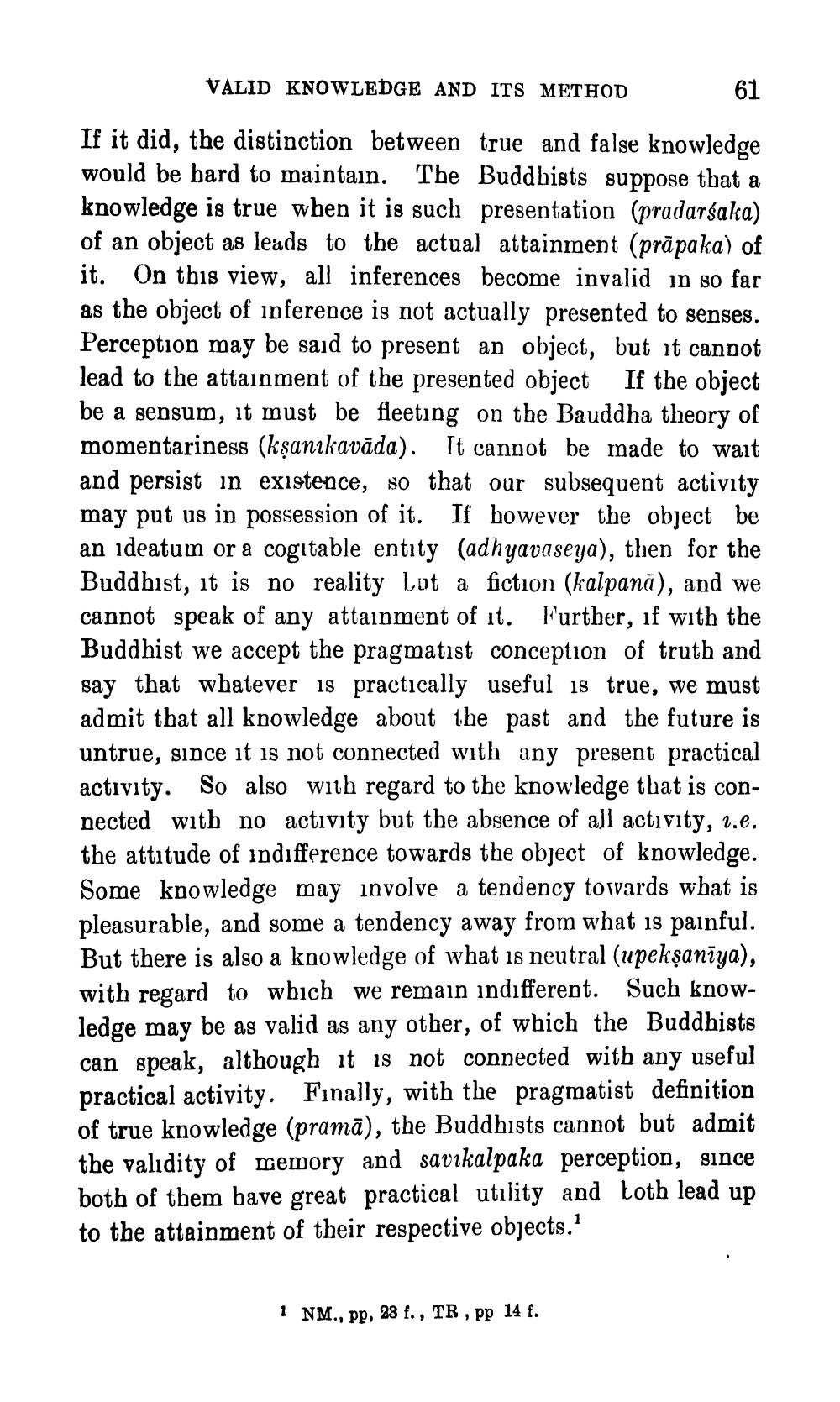________________
VALID KNOWLEDGE AND ITS METHOD
If it did, the distinction between true and false knowledge would be hard to maintain. The Buddhists suppose that a knowledge is true when it is such presentation (pradarśaka) of an object as leads to the actual attainment (prapaka) of it. On this view, all inferences become invalid in so far as the object of inference is not actually presented to senses. Perception may be said to present an object, but it cannot lead to the attainment of the presented object If the object be a sensum, it must be fleeting on the Bauddha theory of momentariness (kṣanikavāda). It cannot be made to wait and persist in existence, so that our subsequent activity may put us in possession of it. If however the object be an ideatum or a cogitable entity (adhyavaseya), then for the Buddhist, it is no reality Lut a fiction (kalpanā), and we cannot speak of any attainment of it. Further, if with the Buddhist we accept the pragmatist conception of truth and say that whatever is practically useful is true, we must admit that all knowledge about the past and the future is untrue, since it is not connected with any present practical activity. So also with regard to the knowledge that is connected with no activity but the absence of all activity, .e. the attitude of indifference towards the object of knowledge. Some knowledge may involve a tendency towards what is pleasurable, and some a tendency away from what is painful. But there is also a knowledge of what is neutral (upekṣaniya), with regard to which we remain indifferent. Such knowledge may be as valid as any other, of which the Buddhists can speak, although it is not connected with any useful practical activity. Finally, with the pragmatist definition of true knowledge (pramā), the Buddhists cannot but admit the validity of memory and savikalpaka perception, since both of them have great practical utility and both lead up to the attainment of their respective objects.1
1 NM., pp, 23 f., TR, pp 14 f.
61




